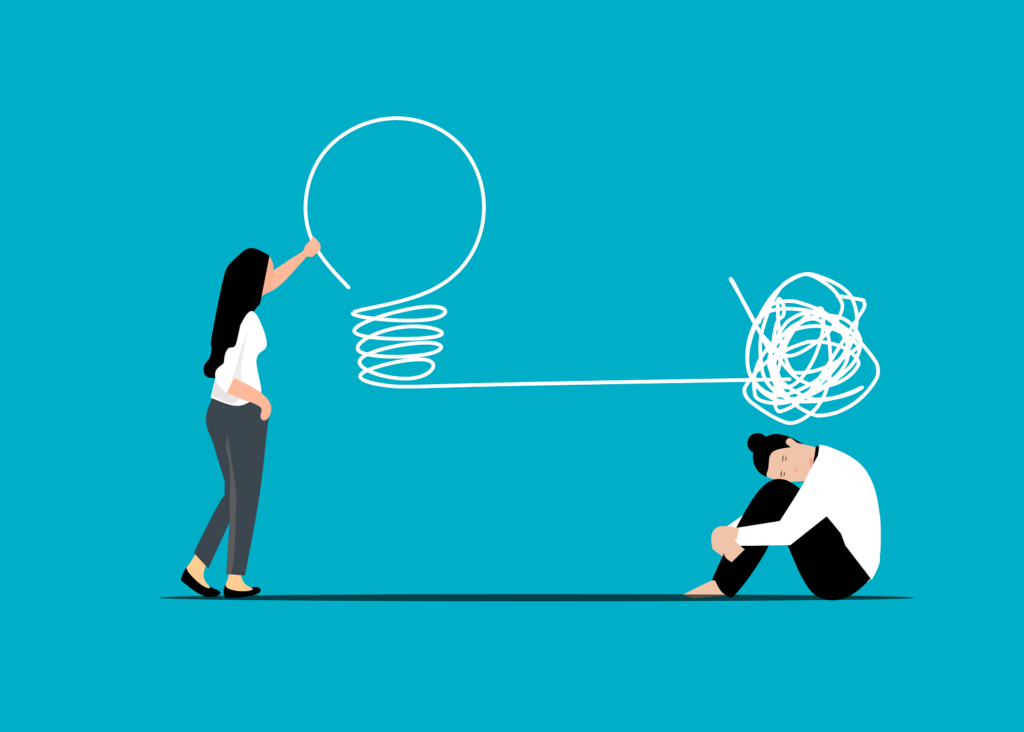Figuring out how to access mental health support can be such a frustrating and draining process. As a therapist who has supported hundreds of people in the Barrie area, I hear this feedback all the time. It’s understandable to feel this way when you don’t know what steps to take or you are facing some of our local barriers to mental health. Key obstacles include lack of clarity about available services, fragmented services, which often lead to confusion and difficulty in finding the right support, and inadequate funding and long wait times that further complicate the process. The following is a comprehensive guide to help you navigate these challenges and find the mental health support you need.
Please note that this is not an exhaustive list of available services in Barrie, but it’s a great guide to get someone started. If you see anything here that is missing or you just want to discuss it, I would love to hear from you!
Understanding the Barriers To Mental Health Support in Barrie
1. Lack of Clarity: Many residents struggle to understand what services are available and how to access them.
2. Fragmented Services: Services are often provided in separate locations without adequate coordination, making it hard for individuals to receive comprehensive care.
3. Inadequate Funding: Limited funding for mental health services means many organizations struggle to meet demand.
4. Long Wait Times: Delays in accessing services can exacerbate mental health issues.
Finding Mental Health Support in Barrie and Simcoe County
For Those with Benefits -How to Access Counselling & Psychotherapy:
1. Check Your Benefits Coverage:
- Extended Health Benefits: Review your insurance plan to see if it covers mental health services like psychotherapy or counseling. Check for coverage limits (e.g., annual maximums or session limits) and eligible providers (e.g., psychologists, psychotherapists, social workers).
- Employee Assistance Programs (EAPs): Many employers offer EAPs, which provide confidential mental health support. These programs often include counseling services, stress management, and referrals to community resources. Check with your HR department to see if your employer offers an EAP.
2. Find a Barrie or Local Therapist:
- Use platforms like Psychology Today to find therapists in Barrie and Simcoe County who match your needs and are covered by your insurance.
- Confirm the therapist’s approach and availability before booking.
- Private Therapists: For those with benefits, seeking a private therapist is often the easiest way to access high-quality support quickly. This also helps ensure that community resources remain available for those who need them most, as these resources often face extended wait times.
Mental Health Support Access For Those Without Benefits:
1. Canadian Mental Health Association (CMHA): Offers free crisis intervention, case management, and peer support services. Contact them at 705-728-5044.
- Location: 90 Mulcaster Street, Barrie, ON.
- Crisis Line: Available 24/7 at 705-728-5044 or toll-free at 1-888-893-8333.
2. Catholic Family Services (CFS): Provides free walk-in counseling sessions in Barrie. Follow-up sessions are available at affordable rates based on income.
- Location: 20 Anne Street South, Barrie, ON.
- Walk-In Hours: Wednesdays from 12 PM to 8 PM (last session starts at 6:45 PM).
- Contact: 705-726-2503 or toll-free at 1-888-726-2503.
3. Integrative Stress Management Program: Offers mindfulness-based courses for managing stress, anxiety, and depression.
- Contact: 705-721-6934 or visit managestress.ca.
4. BounceBack Ontario: A free guided self-help program for managing depression and anxiety. Call 1-866-345-0224.
5. Ontario Structured Psychotherapy Program (OSP): Free Cognitive Behavioral Therapy (CBT) for adults experiencing mild to moderate anxiety or depression.
- Contact: 1-877-341-4729 or email [email protected].
211 Ontario – A Great Resource Available to Everyone
211 Ontario is a valuable resource that provides information and referrals for mental health services and other community resources. You can call 2-1-1 or visit their website to find local services and support.
- Benefits: 211 can help you navigate the complex system of mental health services, connect you with local resources, and provide information on eligibility criteria for various programs.
Crisis Resources in Barrie
If you are in crisis, here are some local resources to help:
1. CMHA Crisis Line: Available 24/7 at 705-728-5044 or toll-free at 1-888-893-8333.
2. Royal Victoria Regional Health Centre (RVH) Emergency Department: Offers immediate mental health support.
- Location: 201 Georgian Drive, Barrie, ON.
- Contact: 705-728-9802.
3. Barrie Police Service Crisis Intervention Team: Trained officers respond to mental health emergencies.
- Contact: 911 for emergencies.
Additional Resources for Barrie Residents:
- Barrie and Community Family Health Team: Provides mental health services, including brief counseling and psychiatric consultations. Call 705-726-4225 for more details.
- New Path Youth and Family Services: Offers free mental health services for children and youth. Contact them for support and guidance.
Flowchart Summary
Here is a simplified flowchart to guide you through the process:
1. Start: Check if you have extended health benefits or an EAP.
2. With Extended Benefits or EAP:
- If you have extended benefits use Psychology Today to find a therapist.
- Confirm with HR at your workplace about what services are offered through your EAP
- If you have the coverage available, prioritize looking for private therapy. It’s beneficial because you can usually find a qualified therapist much faster. This route also preserves community resources for those who need it.
3. Without Benefits:
- Explore free resources like CMHA, CFS, and BounceBack Ontario.
- Consider low-cost options like sliding scale fees.
- Use 211 Ontario for referrals and information.
4. In Crisis:
- Contact CMHA Crisis Line or visit RVH Emergency Department.
Conclusion
Navigating mental health support in Barrie and Simcoe County requires patience and persistence. By understanding the barriers and utilizing the resources outlined above, you can find the support you need. If you have further questions or would like to explore therapy options, feel free to contact me for more information.
